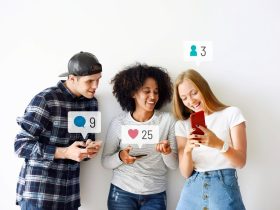If you are currently using antidepressants or have used them in the past, do you tweet? A new study shows that people on anti-depressants may be more likely to tweet about emotions and feelings than people who aren’t on antidepressants – possibly providing insight into the impact of these drugs on users’ well-being and health. Can Twitter help us understand the impact of anti-depressant drugs?
How it works?
The tweet project is a crowd sourced data collection project. Researchers say that the tweets can provide valuable insight into how people interact with their environment and how they might be affected by certain medications. By cataloging a week’s worth of tweets, they found that people who took anti-depressants had a more positive outlook on life than those who didn’t. You can reduce your stress by playing casino en ligne argent reel with your friends.
What do we mean by ‘impact’ in this context?
One important aspect of the impact of anti-depressant drugs is their side effects. One study found that anti-depressants have a range of effects, including sleep disturbances, weight gain, headaches, and sexual dysfunction. Another study found that those who took antidepressant medications reported feeling more disconnected from their emotions. A third study found that people who are on antidepressants are less likely to think they can improve their mood without taking medication.
Benefits of social media data as a source of data in clinical trials
Thanks to social media, we now have access to an unprecedented amount of data about how people are feeling and behaving. With the help of machine learning and computer science, we can use this data to better understand the impact of anti-depressants. In fact, researchers at Stanford University found that it is possible to use public tweets as a proxy for a depression diagnosis. There is still a lot more work needed before social media data can be used in clinical trials but the potential benefits are very promising. Social friends can enjoy together best real money online casinos for a good time.
Limitations of social media data as a source for understanding drug effectiveness
Tweets are not a reliable source for understanding the effectiveness of anti-depressant drugs. There is no way to distinguish tweets from people who are depressed, people who take an anti-depressant drug and have depression or people with depression who don’t take an anti-depressant drug. Tweets also cannot reflect the long-term effects of medication and do not indicate whether a person on an anti-depressant drug is taking their medication as prescribed.
What does this mean to you if you’re taking an antidepressant drug?
There has been a lot of research done on the effectiveness of anti-depressive drugs and how they can help with depression. One study found that people who took anti-depressive medication were less likely to be rehospitalized for depression. It’s interesting to see how social media can be used as a tool for understanding how these drugs work, but it is important not to rely on this alone for a diagnosis or treatment plan.
Pros and Cons
Tweets can provide a glimpse into the emotional state of those who may not be willing to share. Some tweets that talk about mental health are extremely sensitive and should only be shared with close friends, family members, and professionals. Potential risks include self-disclosure at an early age in an environment where people feel comfortable enough to interact, but other followers do not. In this case, tweets about mental health may unintentionally lead to increased stigma for others in the population as opposed to alleviating it.









Leave a Reply